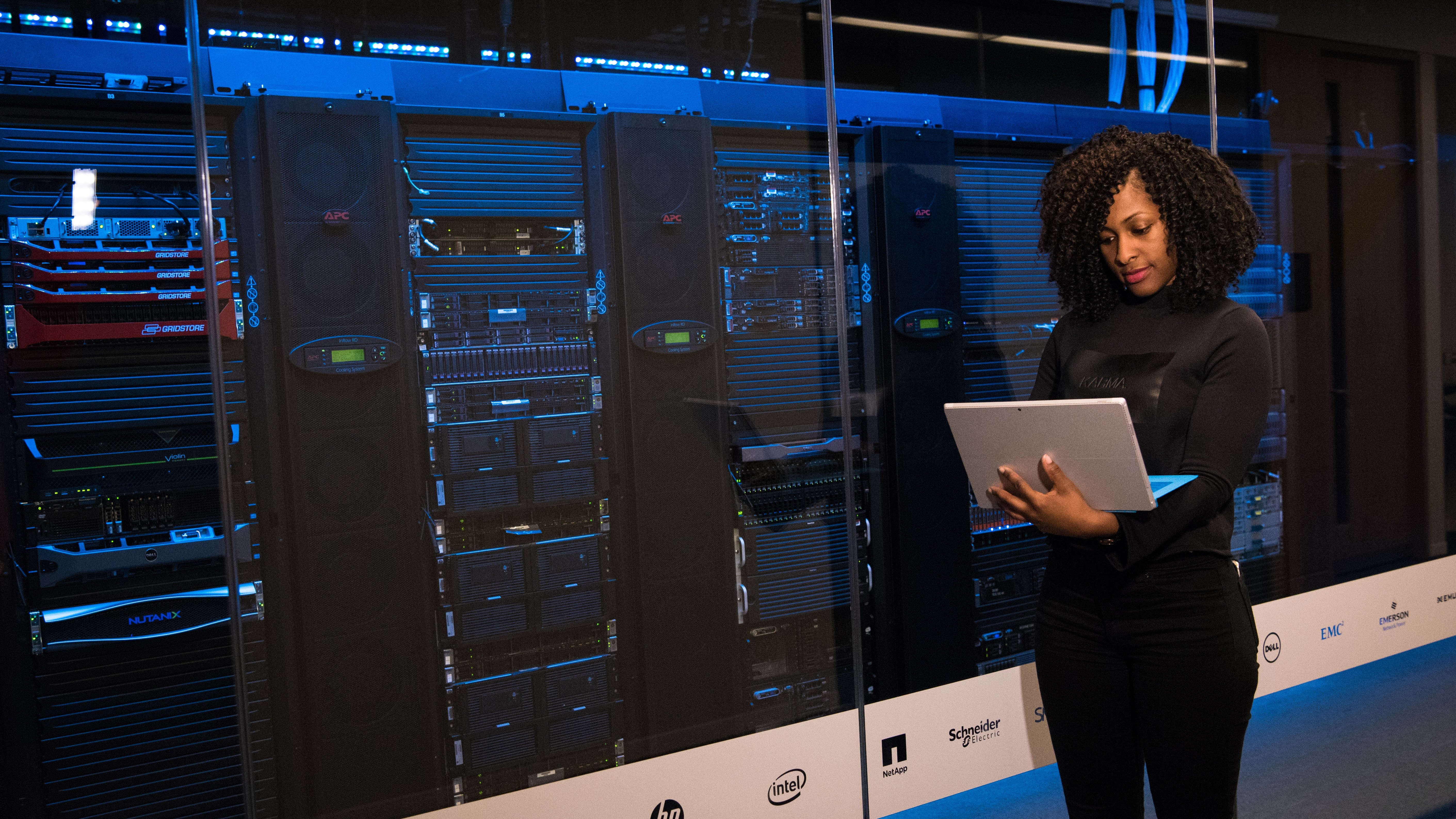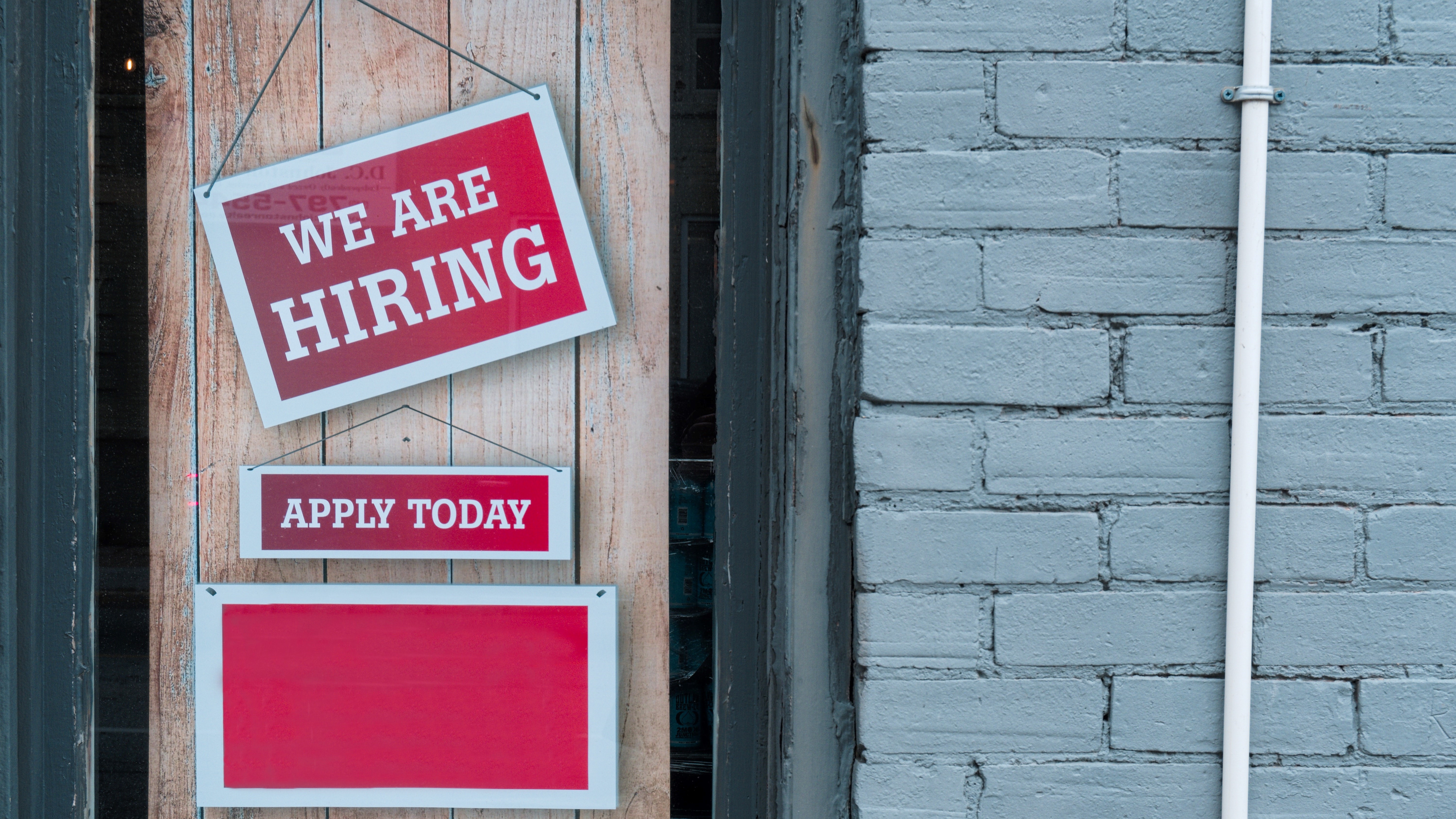22 common interview questions and the best answers
We reveal how to nail your next job with perfect answers to common questions

A job interview can be an incredibly stressful experience, but there’s no denying that thorough preparation can pay off – quite literally.
If you want to give yourself the best chance of success then it’s important to consider how you’ll respond to all of the questions that you’re probably going to be asked.
That might sound daunting, but loads of interviewers will ask the same questions – no matter the job, and no matter the industry. Regardless of the position or level of seniority, that means you’ll be able to anticipate questions and get top-quality answers ready in advance.
We’ve taken a deep dive into twenty of the most common interview questions and explained the best answers – so you’ll be sure to impress. And if you’d like more job application assistance, here are ten amazing resume examples and the skills you should include and avoid on your next resume.
Start Your New Job Search in Minutes with ZipRecruiter
With over 8 million jobs, ZipRecruiter is the one of the best places to start looking for your next job. Get started for free today.
Tell me about yourself and your background?
This will always be one of the first questions in any job interview. Happily, it seems pretty easy to answer: you need to give a brief history of your employment, highlight your key achievements, and explain what makes you perfect for the position.
Don’t sleep on your preparation, though. Prepare an elevator pitch for this part of the interview – sell yourself in under a minute without becoming boastful or arrogant.
Don’t just list your CV, either. Highlight the key achievements, but remain conversational rather than robotic – interviewers are looking for someone who is confident and comfortable.
Are you a pro? Subscribe to our newsletter
Sign up to the TechRadar Pro newsletter to get all the top news, opinion, features and guidance your business needs to succeed!
How would you describe yourself?
This sounds like the previous question, but it’s a subtly different beast. Instead of talking about your career progression, cover the personality traits that would make you ideal for the job at hand. It’s absolutely fine to answer this question with weaknesses, too – everyone has them, and by acknowledging those then you show that you’ve got good self-awareness.
If you can back up your strengths with achievements and data to show how they can benefit a business, even better.

Why do you want to work here?
This question is the perfect chance to display your interview preparation. Interviewers want to know that you’ve done your research about the company – you should talk about its culture, values and history and explain how those align with your own mentality.
This question is a great opportunity to demonstrate that you’re a perfect match for the business. It’s also a good idea to point to the company’s unique strengths, share how the company’s mission dovetails with yours, and share what excites you.
What motivates you?
It’s a simple question with a complex answer. If you want to impress an interviewer, you need to remember the times when you’ve been particularly motivated in previous positions.
You should mention those occasions, explain exactly why you were motivated, and then explain how you’ll find the same motivation in this company – highlight something specific that you saw in the job description or something about the business that you find exciting.
If you’re open and honest about this question then your enthusiasm will be obvious. Interviewers know that no one will be motivated by every aspect of their job, but if you can prove your excitement for key aspects of the role then you’ll impress the people across the desk.
Why are you leaving your current position?
This can be one of the most awkward questions in any interview, but you can be sure that it’s going to come up.
No matter what happened in your previous job, keep things positive – negativity will reflect badly on you as a candidate. If you left under difficult circumstances, don’t go into details. If you were made redundant or fired, say that, don’t feel that you have to elaborate. And if a firing does come up, explain that you’ve learned from the experience.
Indeed, it’s important to concentrate on the future, no matter what happened in the past. Instead of talking about your old job, explain how you feel that this new company will help you achieve your goals and that you’ll be a great fit.
What are your goals for the future?
This question will always come up, because interviewers want to gauge if you’ll be a loyal employee or if you’re likely to move on quickly.
No matter what your career plans, it’s important to answer this question with honesty about your personal goals. You should show how those goals match up with the company’s own objectives.
Even if you don’t plan to stick around for the long term, it’s fine to answer ambiguously about the future while confirming that you think you’ll be a great fit for the company and that you can have a mutually beneficial professional relationship.

How do you deal with stressful situations?
This is a behavioral interview question, and the interviewer will be looking for answers that call on your real-world experience.
If you want to answer this properly, explain an occasion when you’ve encountered some issues at work – and tell the interviewer exactly what you did to overcome the problem and manage your own stress levels.
It’s also important to clarify your own day-to-day methods for dealing with stress. Whether it’s with exercise, mindfulness techniques or hobbies, any interviewer wants to know if you can cope with tense situations and everyday problems.
What are your salary expectations?
This question can be awkward, but you can answer effectively if you’ve done your research. Before your interview, find out the salaries on offer for this job across your industry. Consider your own level of education and experience, the location, and your own salary requirements, and use that data to create a salary range to give the employer.
Ensure that you’d be comfortable living on any figure within that range, and clarify that you’re open to negotiation – you don’t want to instantly shut down your job prospects.

Can you tell me about a time you solved a problem at work?
This is another behavioral question where interviewers are looking for real-life examples that prove your suitability for the job.
Interviewers want to know about your problem-solving, critical thinking, organization, and communication skills here, so pick a time when you’ve solved issues at work and explain in detail about how you got the job done, and how the positive outcome helped the business.
If you need to plan an answer, use the STAR method – outline the situation, explain the tasks required, talk about your actions and clarify the results.
What are your biggest strengths and weaknesses?
This question can be daunting because it’s so open-ended, but good preparation can eliminate those nerves.
When talking about your best qualities, use examples from your working life to bolster your claims. Mentions strengths that match attributes that you’ve seen in the job advert.
Be honest about your weaknesses. Don’t just name them when you answer – explain your strategy for improving your performance in this area, too, so the interviewer can see that you’ve got self-awareness and determination in equal measure.

What would be your dream job?
It might be tempting to answer this query with a flippant and funny answer about show business or sports, but you’ll impress if you give an answer that reflects your dream scenario with an added dose of realism – in short, the interviewer wants to know where you’d like to end up in your career and how you plan to achieve that goal.
This is a great chance to talk about your skills, your passions and the areas you want to develop, and how the company can help you improve in all of those departments.
How do you cope with shifting deadlines?
Deadlines are difficult, but they’re an inevitable part of work. Answer this question by explaining a time in the past when you’ve had to cope with changing deadlines – demonstrate how you navigated the stress, how you still got the job done, and how you kept your cool.
Interviewers want to know if you’re adaptable and good at handling pressure, and they’ll appreciate it if you answer using a real example of your abilities.
What’s your least favorite part about work?
You might not expect this question to come up, but it’s a common query and it’s good to acknowledge that everyone has parts of their job that they don’t just like.
This is a question where honesty pays off. Admit one area of your previous position that you just don’t like too much, and explain the strategies you use to ensure that you get the work completed despite your distaste.
There should be a second part to your answer: explain the aspects of the new role that you’re really looking forward to tackling, which will turn this answer into a positive.

How do you stay organized?
Any good interviewer will want to know if you can keep yourself organized in a fast-moving, pressurized work situation.
Demonstrate your organizational ability by using examples about times when your job has been busy in the past – if you can explain the strategies you’ve used to cope with multiple deadlines and busy projects and still get the work completed on time, then you’re going to impress.
Interviewers want to know that you’ve got a well-honed system for keeping organized, and they need to know that you’re able to respect deadlines and stay on task.
Who are your role models?
Your answer here doesn’t necessarily have to be a person who works in the same industry as the job in question – or even a business figure at all. It’s totally acceptable to name a figure from the worlds of sport, culture, or politics.
The key thing is to explain why the person is your role model using positive, admirable attributes and achievements that are reflected in the job that you’re hoping to land. If you can answer using things that tally with the job description you’re discussing, you’ll be fine.
Tell me about your hobbies and interests?
If you answer this question with passion and enthusiasm, interviewers will notice, and consider what skills and attributes you’ve learned outside of the office – because some of those will undoubtedly benefit you at work, too. If you can mention those transferrable skills, the interviewer will be pleased.
Remain professional, though, and be aware of hobbies and interests that could prove to be a red flag for the interviewer or the company at large.

Tell me about the last book you read?
This might seem an unusual question to ask in a job interview, but your answer can reveal plenty about your personality – and that’s important to any interviewer.
Choose a book that you have actually read, even if it’s not the last one you finished – the interviewer doesn’t know that, and it could help you give a better answer.
Interviewers want to get to know you a little better, so answer honestly and don’t worry about genre. Explain what you liked about the book, what it taught you, and how you can bring lessons from the page to the workplace. It’s a great question to demonstrate your cultural nous.
Don’t worry if you don’t read much, either – remain honest and talk about your other hobbies, as they can just as easily demonstrate the same things as a novel.
What’s your proudest professional achievement?
Interviewers ask this question so they can find out about what achievements are important to you – this question is about personality as much as it is about workplace triumphs.
Nevertheless, it’s still a great chance to show off. Pick a career moment that you’re particularly proud of and explain it in a way that links it to the job you’ve applied for – so the interviewer knows you can bring that level of success to the new position.

How did you hear about this vacancy?
There’s no wrong answer here, so be honest. No matter how you came across the vacancy, explain what caught your eye about the company and the role in question – express your enthusiasm, and how you believe that your goals and the firm’s objectives would make you a good match. And if someone recommended you for the vacancy, name them as a contact.
Why is there a gap in your employment history?
There are an endless number of reasons why people would have a gap in their employment history, and not all are nefarious – most are entirely understandable. Be prepared to explain your employment gaps, because the interviewer will want to be reassured.
Always remember that you don’t have to give more detail here if you don’t feel comfortable. If you gained skills or knowledge during your time away from employment, explain that too.
Tell me about your resume?
The interviewer will already have given your resume a proper examination if they’ve asked you to visit for an interview, but this question will often come up early in the meeting and it gives you a great opportunity to present yourself and your career history in a more personable way.
It’s a great chance for you to guide the interviewer through your educational and career history by using anecdotes and stories about your successes, and that’s a great way to add some meat to the bones of your working life.
If you’re asked this question, you can use your answer as a platform to explain why you’d be perfect for the current job. It’s a great opportunity to link your past jobs and experiences to the current position and bring some more anecdotal evidence to the fore – and that can help you develop a better relationship with your interviewer.
Tell me about a time you made a mistake?
It might seem counterintuitive to talk about your past mistakes when you’re trying to convince someone to give you a job, but don’t fret if this question gets asked in an interview – instead, take the opportunity to turn a negative into a positive.
The interviewer will know that everyone makes mistakes, and won’t hold it against you. If you admit the mistake, show honesty, and demonstrate how you rectified the problem and learned from the blunder, you’ll effectively prove that you can fix issues, improve yourself and take responsibility for workplace problems.
Explaining how you rectified a mistake can also show the interviewer that you care about producing high-quality work, and that you’re capable of handling constructive criticism.
They’re all qualities that an interviewer will love to see in a potential new hire, and real-world stories show that you can deploy them effectively in the workplace.
Mike has worked as a technology journalist for more than a decade and has written for most of the UK’s big technology titles alongside numerous global outlets. He loves PCs, laptops and any new hardware, and covers everything from the latest business trends to high-end gaming gear.
